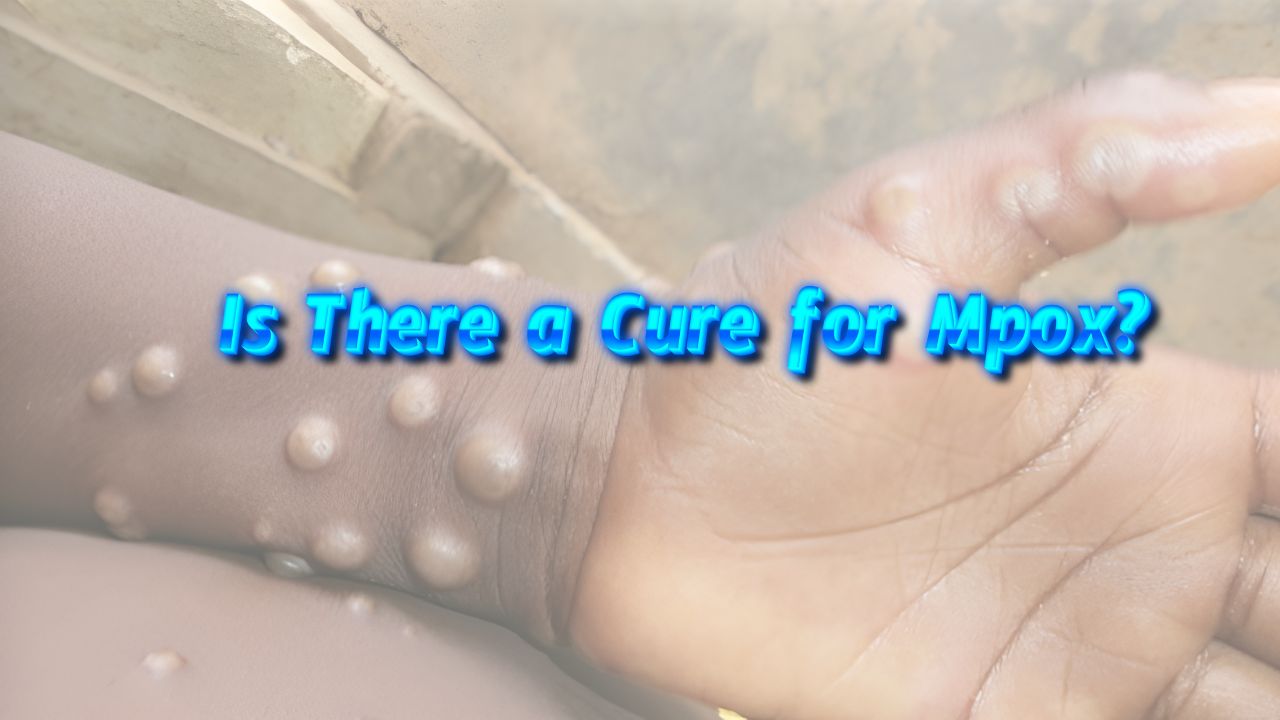Explore whether there is a cure for Mpox (monkeypox) and learn about current treatment options, including antiviral medications, supportive care, and preventive measures like vaccination.
Mpox, formerly known as monkeypox, is a viral disease that has captured global attention due to its potential to cause outbreaks and significant health concerns. While less severe than smallpox, Mpox can still pose serious health risks, especially for certain vulnerable populations. One of the most pressing questions for those affected by or concerned about the disease is whether there is a cure for Mpox. This article explores the current state of treatment options, including what is known about potential cures and how the disease is managed.
Table of Contents
Understanding Mpox
The Mpox virus causes Mpox, a member of the Orthopoxvirus genus. It was first identified in humans in 1970 in the Democratic Republic of the Congo. Since then, it has primarily been found in Central and West Africa, with occasional outbreaks in other parts of the world.
The disease usually begins with flu-like symptoms, including fever, headache, muscle aches, and swollen lymph nodes, followed by a characteristic rash that progresses from flat spots to raised bumps, blisters, and scabs. The illness typically lasts 2 to 4 weeks, and while many people recover without severe complications, the disease can be fatal in rare cases, particularly in individuals with weakened immune systems, young children, and pregnant women.
Is There a Cure for Mpox?
As of now, there is no specific cure for Mpox. However, there are treatment options and supportive care measures that can help manage symptoms, reduce the severity of the disease, and prevent complications.
Current Treatment Options
1. Supportive Care
- Symptom Management: Most people with Mpox receive supportive care to manage symptoms. This includes antipyretics and pain relievers for fever and discomfort, as well as antihistamines to alleviate itching from the rash.
- Hydration: Ensuring adequate hydration is crucial, especially if oral lesions make eating and drinking difficult. Intravenous fluids may be necessary in severe cases.
- Wound Care: Skin lesions should be kept clean and dry to prevent secondary bacterial infections. If bacterial infections occur, antibiotics may be prescribed.
2. Antiviral Medications
- Tecovirimat (TPOXX): Tecovirimat is an antiviral drug that has been approved for the treatment of smallpox and has shown promise in treating Mpox as well. It works by inhibiting the viral envelope protein, preventing the virus from spreading within the body. Although it is not a cure, Tecovirimat can reduce the severity and duration of symptoms in some patients.
- Cidofovir and Brincidofovir: These are antiviral medications that have been used experimentally to treat severe cases of Mpox. They work by inhibiting viral DNA polymerase, which is essential for viral replication. However, their use is limited due to potential side effects and the need for more research to confirm their effectiveness against Mpox.
3. Vaccination
- Post-Exposure Prophylaxis (PEP): Vaccination with the smallpox vaccine (such as JYNNEOS or ACAM2000) can provide some protection against Mpox, especially if administered within 4 days of exposure. While vaccines do not cure the disease, they can reduce the severity of symptoms and prevent the spread of the virus.
4. Immune System Support
- Immunoglobulin Therapy: In some cases, especially for immunocompromised individuals, immunoglobulin therapy may be used to provide passive immunity by supplying antibodies that help fight the virus. This is not a cure, but it can support the immune system’s response to the infection.
Experimental and Emerging Treatments
Research is ongoing to identify more effective treatments for Mpox. Scientists are exploring various antiviral drugs, immune-based therapies, and even repurposing existing medications to combat the virus more effectively. However, these treatments are still in the experimental stages and are not yet widely available.
Preventive Measures and Vaccination
While there is no cure for Mpox, prevention remains the best strategy. The following measures can help reduce the risk of infection:
- Vaccination: People at high risk, such as healthcare workers, laboratory personnel, and those in areas with active outbreaks, may be eligible for vaccination against Mpox. The JYNNEOS vaccine is safer and more widely recommended than older vaccines like ACAM2000.
- Avoiding Contact with Infected Animals and Individuals: Mpox can be transmitted from animals to humans, as well as from person to person. Avoiding close contact with potentially infected animals and individuals can significantly reduce the risk of contracting the virus.
- Good Hygiene Practices: Regular hand washing with soap and water or using an alcohol-based hand sanitizer can help prevent the spread of the virus. Disinfecting surfaces and avoiding the sharing of personal items can also reduce transmission.
- Isolation: If you suspect you have Mpox, isolating yourself from others, especially during the period when the rash is present, can help prevent the spread of the virus.
Conclusion
While there is no specific cure for Mpox, a combination of supportive care, antiviral medications, and preventive measures can effectively manage the disease and reduce its impact. Ongoing research may eventually lead to more targeted treatments, but for now, the focus remains on symptom management, prevention, and vaccination.
If you suspect you have been exposed to Mpox or are showing symptoms, it is crucial to seek medical attention promptly. Early diagnosis and treatment can make a significant difference in the outcome of the disease. Stay informed, follow public health guidelines, and take preventive measures to protect yourself and those around you.
Final Thoughts
Mpox is a serious viral disease, but with proper care and precautions, most people can recover without severe complications. Understanding the current treatment options and preventive measures is essential for managing and preventing the spread of the virus. While a cure may not yet be available, advancements in medical research continue to bring us closer to more effective solutions.

